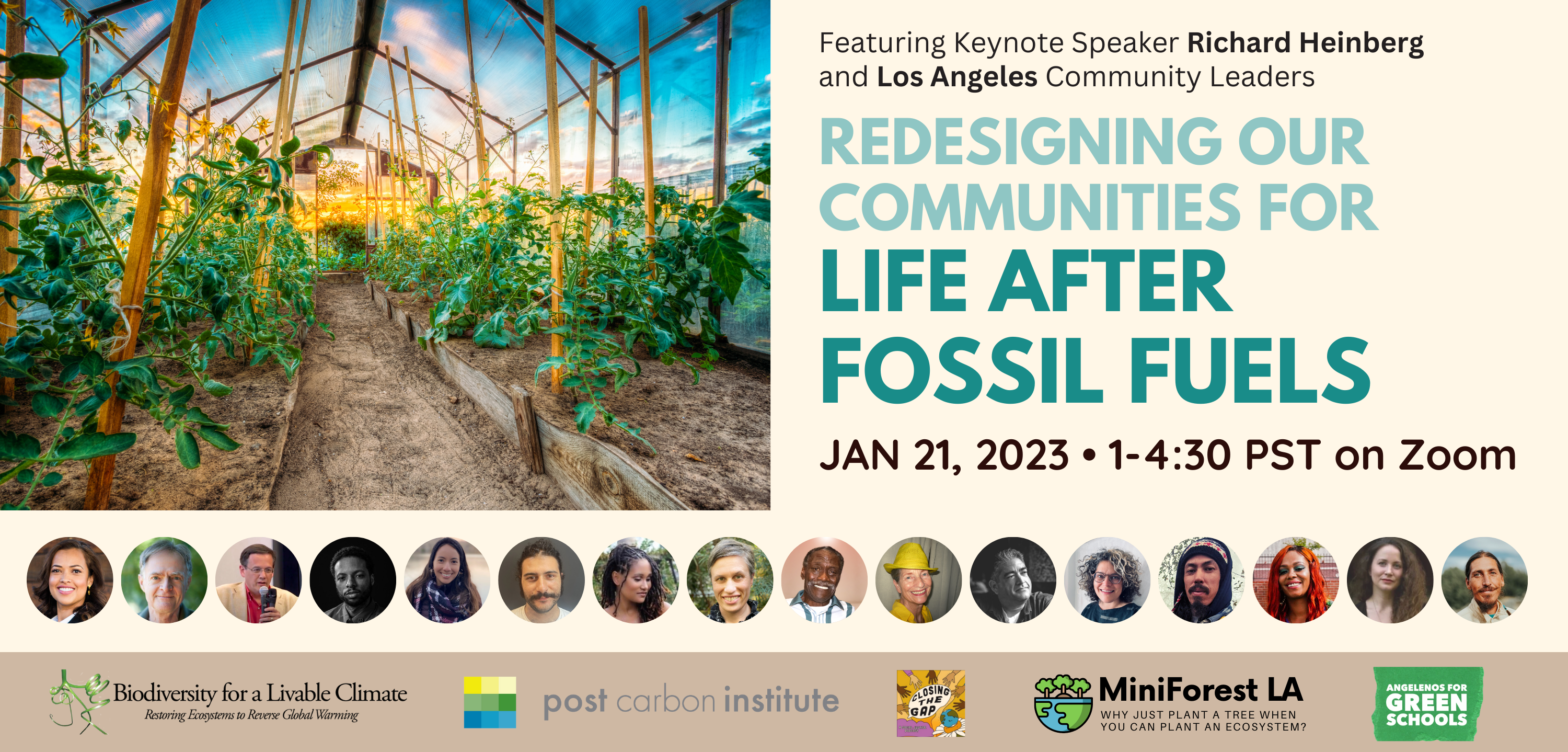Redesigning Our Communities
for Life After Fossil Fuels
A series of virtual and in-person community events
in 6 locations in the U.S. and Canada
Third Event: LOS ANGELES • on Zoom
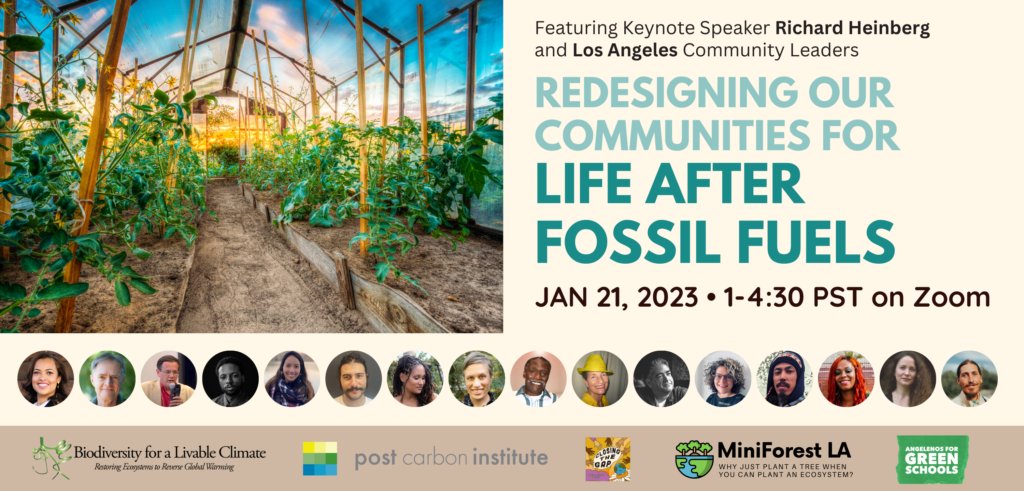
Saturday, January 21, 2023
1:00 – 4:30 pm PST • on Zoom
Biodiversity for a Livable Climate is partnering with the Post Carbon Institute and many local community groups to bring you a series of events on transitioning our communities to manage our ecological crises. These events are taking place virtually on Zoom and in-person at community events in 6 locations throughout the U.S. and Canada. Our first event was on September 10 with leaders from Montgomery County, Maryland and our second event was on November 12 with leaders from Kansas City, Missouri and Kansas City, Kansas.
Join us for our third event on Saturday, January 21, 2023 on Zoom with local leaders from Los Angeles as we share resources, expertise, and actionable solutions to build resilience for these rapidly changing times.
Land Acknowledgement
We acknowledge that we are hosting this event with community leaders who live on the unceded Tongva (Gabrieleno) and Chumash tribal lands.
Keynote Speaker
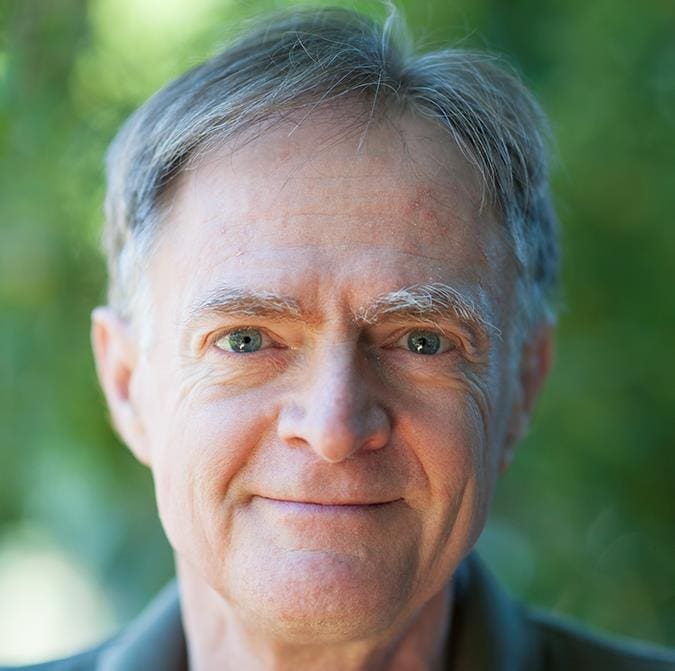
Life After Fossil Fuels
Richard Heinberg, Senior Fellow, Post Carbon Institute
Richard Heinberg is a Senior Fellow at Post Carbon Institute and is the author of 14 books, including POWER: LIMITS AND PROSPECTS FOR HUMAN SURVIVAL, along with hundreds of essays and articles, some of which have appeared in NATURE, WALL STREET JOURNAL and THE AMERICAN PROSPECT. He has lectured on 6 continents and has appeared in numerous environmental documentary films.
It’s time to scale way back, redesign how we’re living and roll up our sleeves to restore our ecosystems, soil, biodiversity and connections with our neighbors.
As we learn and take action on how to live within the Earth’s limits, it’s vital that we co-invent and redesign our new lifestyles together with all members of our communities, especially our under-resourced community members, who are often the most seriously impacted by the climate and other crises.
Let’s include everyone in the conversations, the plans, and the funding. We must move forward by coming together, learning from one another, and supporting each other as we strengthen our resilience and face the challenges ahead.
Main Session
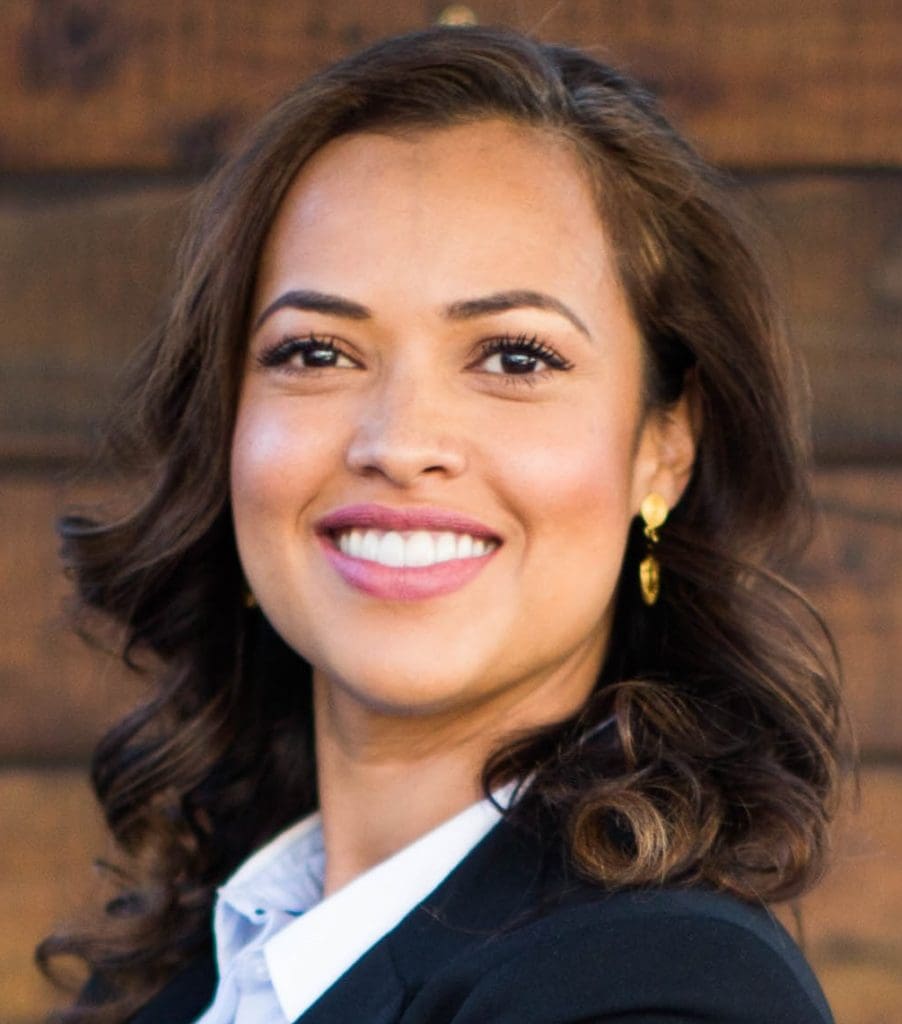
Event Moderator
Aura Vasquez, Founder, Ready to Help LA, Board Member, Los Angeles League of Conservation Voters, Community Organizer, Consulting Specialist
Aura Vasquez has years of experience working with multiple stakeholders from government, private sector, and diverse communities. Earning a degree in Political Science in NYC, she worked as a Political Advisor at Congressman Eliot Engel’s office in 2005. Her public policy experience led her a position at United Way of NYC where she advocated for closing the achievement gap in NYC’s most vulnerable communities and managed the Dropout Prevention Initiative.
She is an experienced organizer on environmental issues related to communities most affected. She recently designed, led, and coordinated the Southern California Advocate for Clean Air (SCACA) initiative. In March of 2014, Aura worked with Mayor Villaraigosa, the Sierra Club, and a citywide coalition to create a plan and declaration for LA to be coal-free by 2025. This makes LA the largest city to go coal-free in the nation and puts Los Angeles on the international map as one of five cities fighting climate change around the world.
Aura also helped spearhead the ban of single-use plastic bags in Los Angeles, along with a coalition of environmental and community-based organizations, legislators and stakeholders. Aura currently serves on the Board of the LA League of Conservation Voters and as Vice-president on the Executive Board of the Wilshire Center Koreatown Neighborhood Council. She recently graduated from a leadership, organizing, and change program at the Harvard Kennedy School.
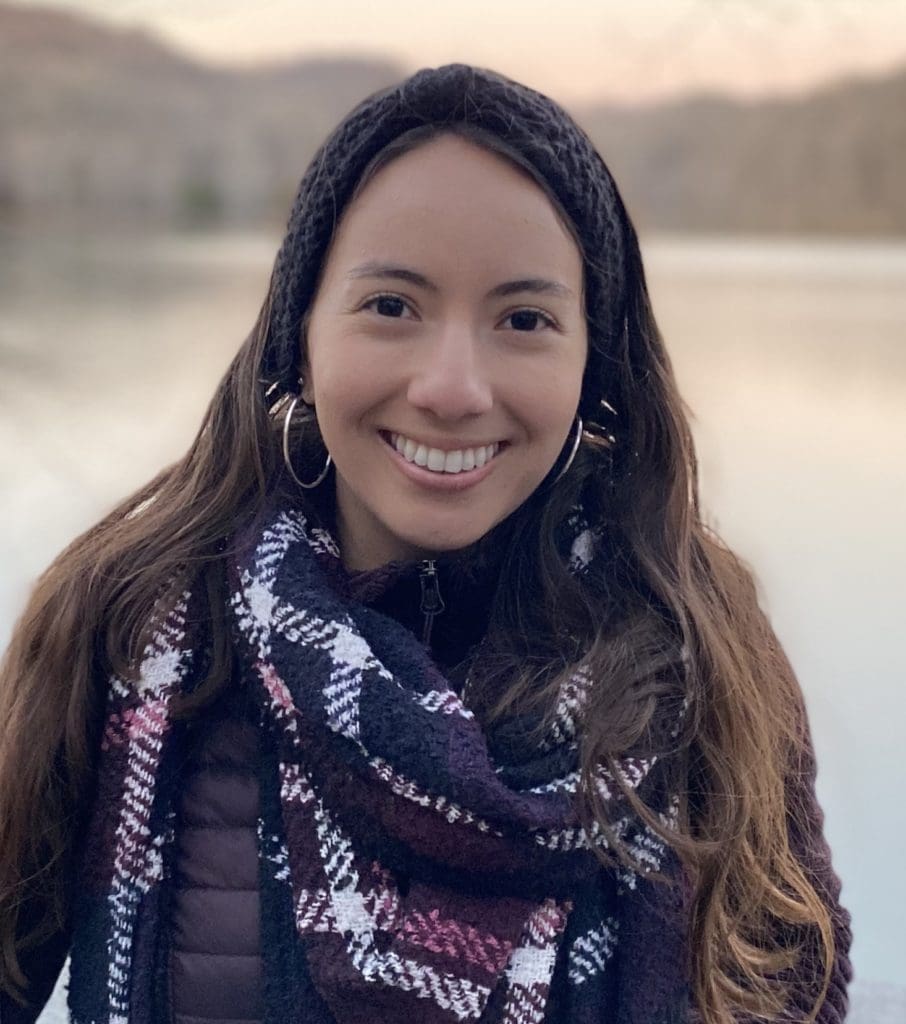
The Power of Ecosystem Restoration
and
Panel Moderator – Untapped Wisdom for Mitigating Natural Disasters & Rapidly Increasing Local Food Production (with Matthew Teutimez, Alison Frazzini, Moses Massenburg, Nathan Lou, and Coakí )
Tania Roa, Former Digital Communications and Outreach Manager, Biodiversity for a Livable Climate, Co-Founder, Co-Host, Closing the Gap – a Social Justice Podcast
Tania Roa graduated from Tufts University with a Master of Science in Animals and Public Policy. Her academic research projects focused on wildlife conservation efforts, and the impacts that human activities have on wild habitats. During her internship with World Animal Net, an international animal welfare organization, she administered comments for the Convention on Biological Diversity’s post-2020 global biodiversity framework and managed campaigns for the High-Level Political Forum, a conference organized by the United Nations. Tania emphasizes the connections between planet, human, and animal health. She loves hiking, snorkeling, and advocating for social justice.
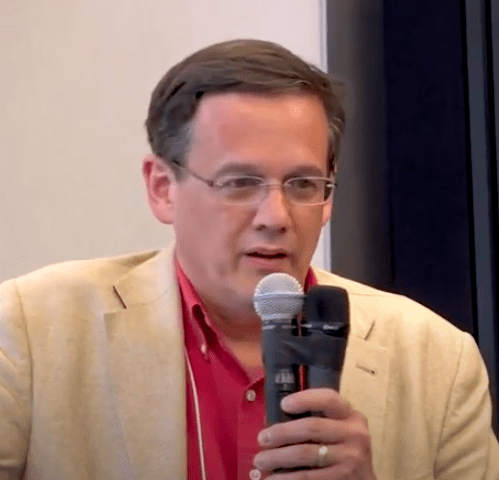
Why Growing Food Must Be Our Top Priority
Philip Bogdonoff, Board Member; Director, Bio4Climate’s D.C. Chapter, Biodiversity for a Livable Climate
Philip Bogdonoff is a co-founder of Biodiversity for a Livable Climate’s Washington DC Chapter. He is a past trustee and board chair, Friends Community School; Co-founder, Sustainable Washington Alliance; Vice President, Millennium Institute; Consultant, World Bank Environment Department; Research Assistant, Section of Ecology and Systematics, Cornell University. Philip and Jim Laurie constructed Washington, DC’s first “Living Machine” more than 15 years ago.
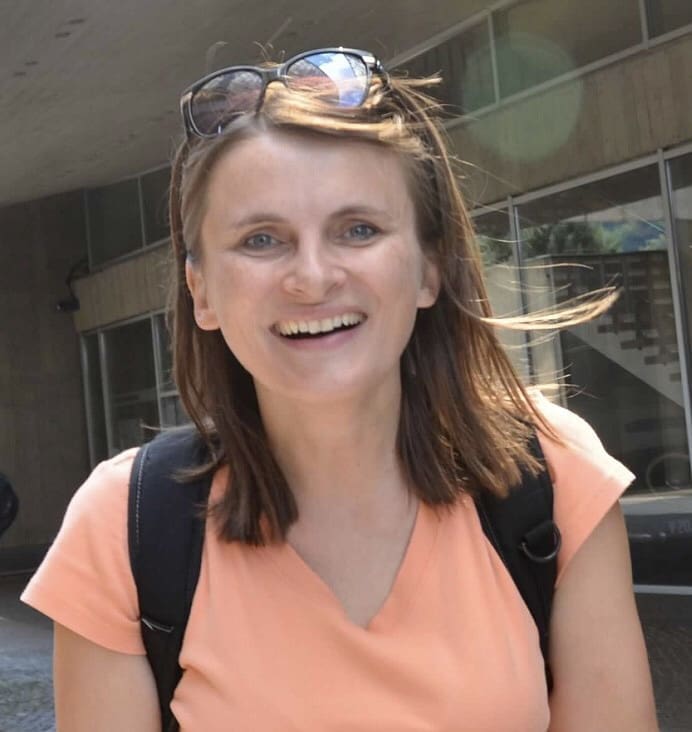
Reduce Flooding & Drought: Capture the Water Where It Lands
Zuzka Mulkerin, Director, Voices of Water for Climate, Biodiversity for a Livable Climate
Zuzka Mulkerin brings her perspective from having lived behind the iron curtain in Slovakia and currently lives in New Jersey. Born in Czecho-Slovakia, she was a nature activist and a program coordinator for a local organization, Tree of Life, and a Global Catholic Youth Movement since her college days. The word “eco” has its root in the old Greek for “home”. Zuzka’s former background as a Finance Operations manager at Pepsi Slovakia, Financial Planning Manager in Kraft Jacobs Suchard Figaro, and auditor at PWC allows her to make connections between economics and ecology with the places we live. In New Jersey, she works as an educator and volunteers her time to care for our common home as a Laudato Sí animator in her community. Her collaboration with the People and Water NGO, the Water Holistic group, and its founder Michal Kravčík since 2020 led her to Biodiversity for a Livable Climate, where she had the privilege to work with Jan Lambert, a friend and the co-founder of Voices of Water. She hopes to continue being a voice for ecosystem-based water renewal, supporting a sustainable community-based new water paradigm.
Breakout Sessions
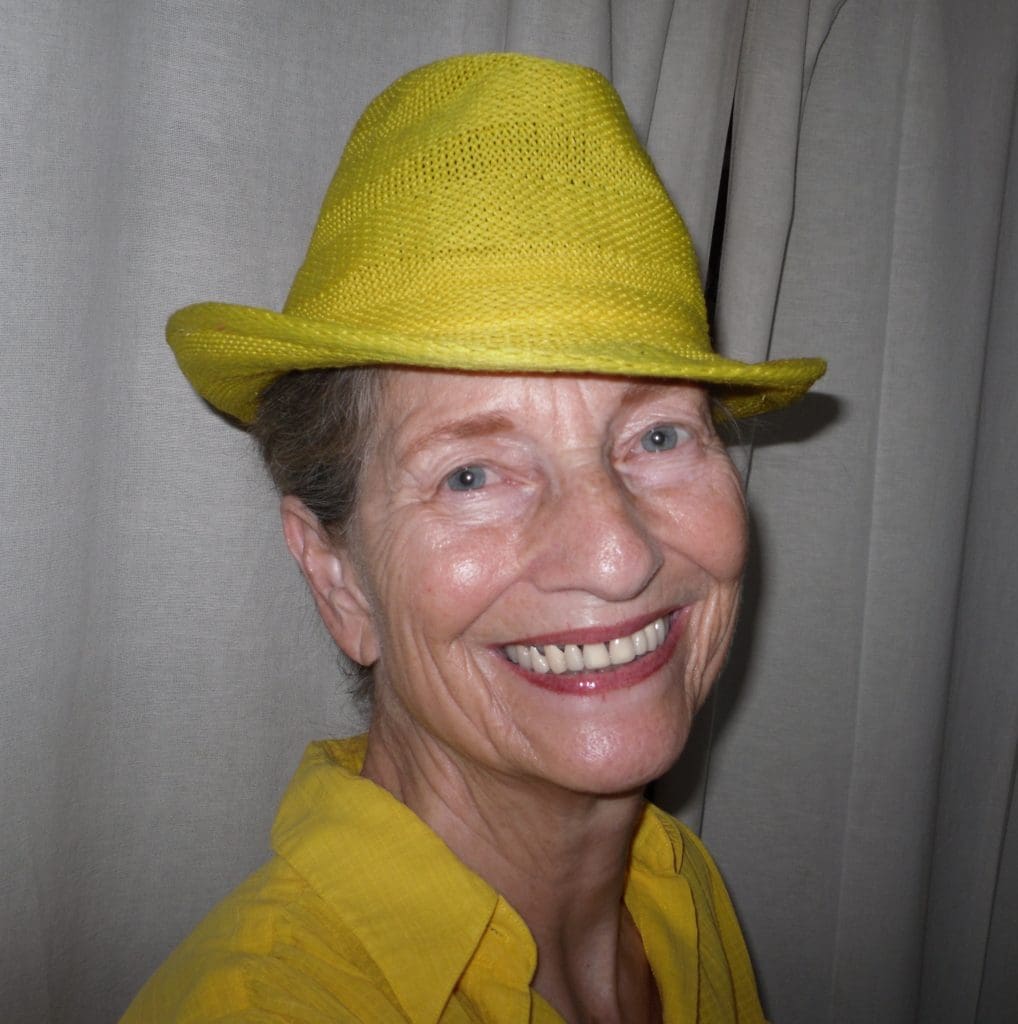
Turn Your Neighborhood into an Eco-Village
Lois Arkin, Co-Founder, Los Angeles Eco-Village, Executive Director, Cooperative Resources and Services Project (CRSP)
Lois Arkin lives and works in the Los Angeles Ecovillage which she co-founded in 1993. She is the Executive Director of CRSP, a nonprofit organization she founded in 1980, now known as the Los Angeles Ecovillage Institute, and is the on-going developer of the Los Angeles Ecovillage. Co-author and editor of two books and numerous articles on urban sustainability and cooperatives, she is a board member of GEN-US, and the Global Village Institute. She gives regular public tours and talks on LA Ecovillage and is a passionate advocate for reducing auto dependency.
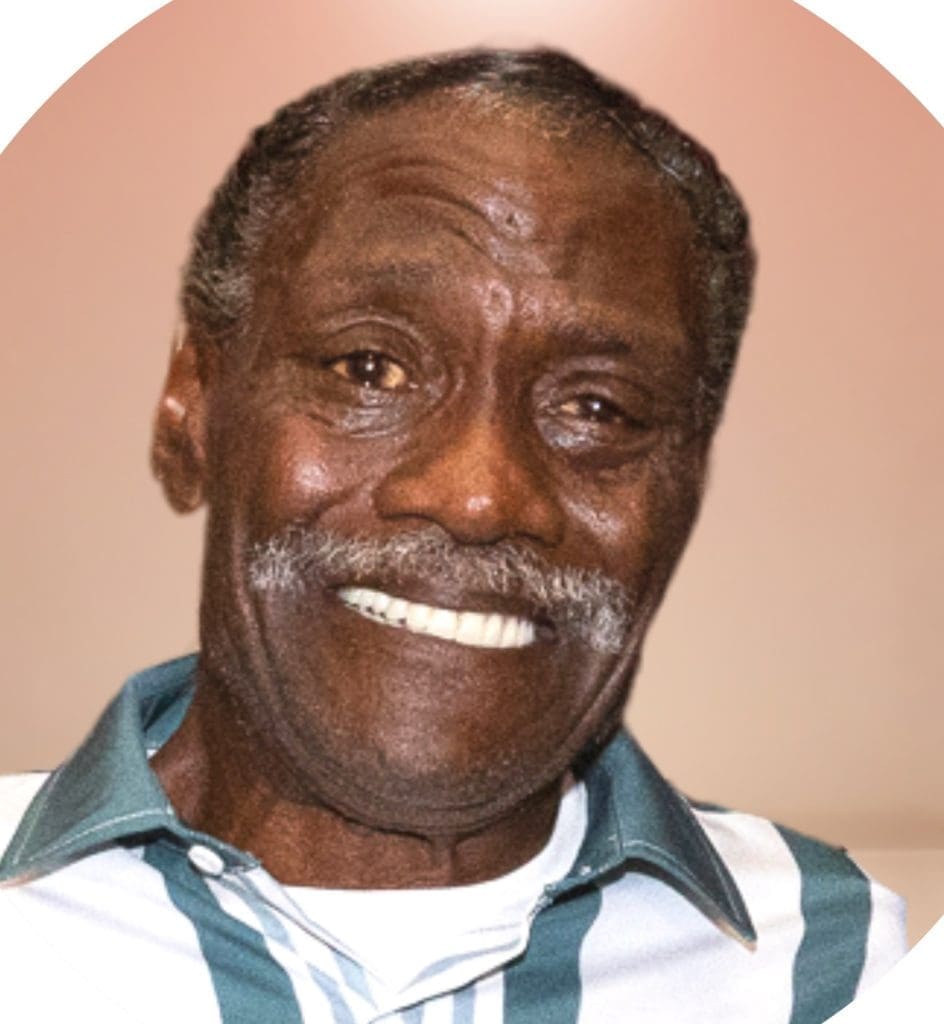
How to Start or Expand on Growing Your Own Food
Charlie Southward, Founder, Director, Urban Farmer, In God’s Hands Gardens
Charlie Southward knows hardship and what it is like to be hungry. In 2006, he became homeless. Fortunately, an organization called Hope Again in Hollywood California provided him with a place to stay and the support he needed for the next two years. This was quite a contrast to the life he had lived up until then. Charlie is a US Air Force veteran who became a caterer in the entertainment industry. He catered for a number of musicians and actors including Luther Vandross, Marvin Gaye, B.B. King, Eddie Murphy, The Pretenders, Miles Davis, Julio Iglesias, Judas Priest and many more!
Even with all of these many blessings, it was at the homeless shelter where God truly revealed himself to Charlie, showing him that he had been blessed with superior talents, but he had to go deep within himself to find them. His skills became even clearer to him when he offered to restore the landscape around the apartment building managed by the owner of Hope Again. When he brought the property back to its original Hollywood Star status, it was then that he realized this came naturally to him, since he had started gardening at the age of five years old.
In 2014, after he found himself homeless again, he started volunteering in the small vegetable garden at the Salvation Army Bell Shelter where he stayed. Associate Director Alma Martinez offered him a small section of land to produce healthy vegetables for the homeless although the shelter could not fund his supplies so he did it at his own expense using his social security checks. This was the beginning of In God’s Hands Gardens, a teaching garden which now produces over 3,900 lbs of food annually for the homeless, with special attention to women and children in shelters in the metro Los Angeles area.
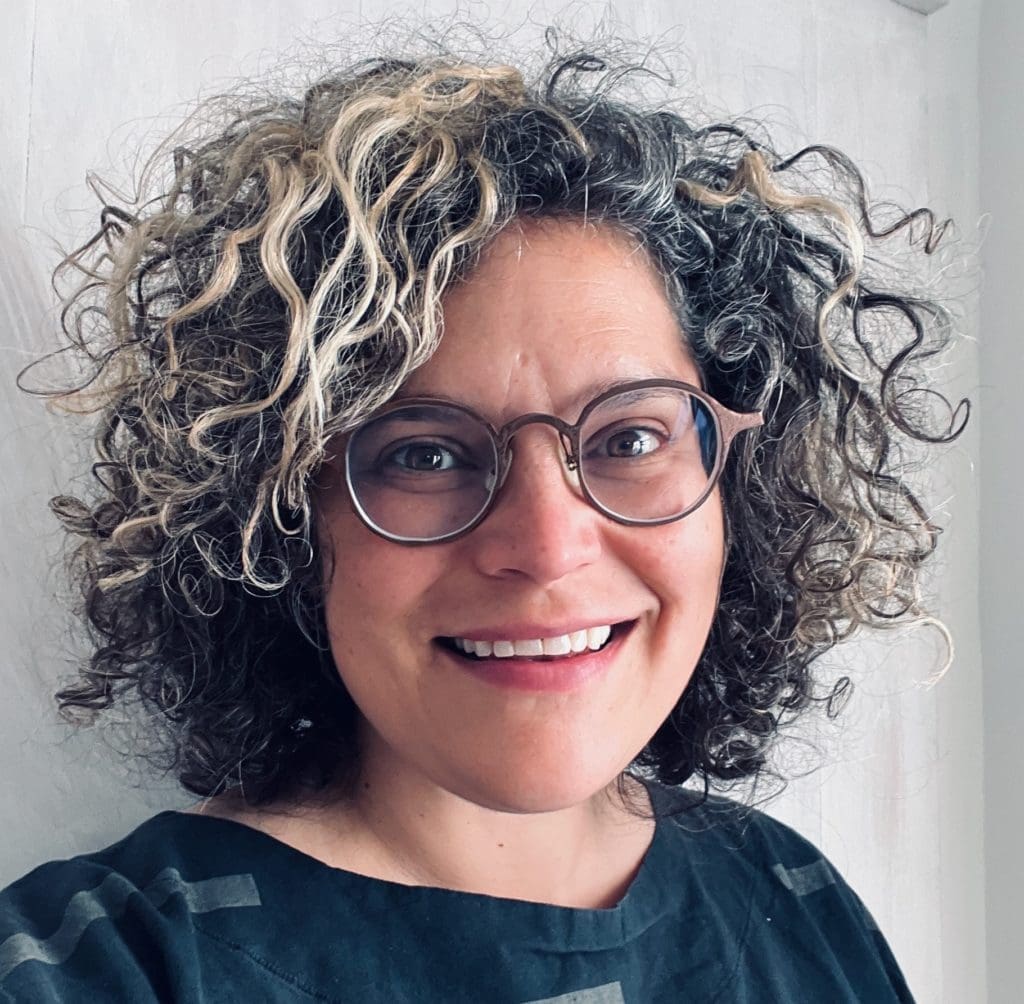
Growing Green Schoolyards: How to Implement Cooling, Water Capture, and Eco-Restoration Practices in Our Neighborhoods – (with Aleigh Lewis)
Shannon Scrofano, Co-Founder, Angelenos for Green Schools, Design Faculty, California Institute of the Arts
Shannon Scrofano (she/her) is a Los Angeles-based designer. She is on design faculty at California Institute of the Arts (CalArts), where she teaches courses in design for social impact, arts + the climate crisis, and scenography. Recent public-benefit partnerships with AltaSea at the Port of Los Angeles, Pico Union Housing Authority and Pando Populus have examined ocean health, neighborhood climate resiliency, and park equity and justice in dialogue with the LA County Sustainability Plan. She is a co-founder of Angelenos for Green Schools and MiniForest LA, and is part of the leadership circle of the Center for Performance and Civic Practice, supporting cross-sector arts-driven collaborations for community-led transformation.
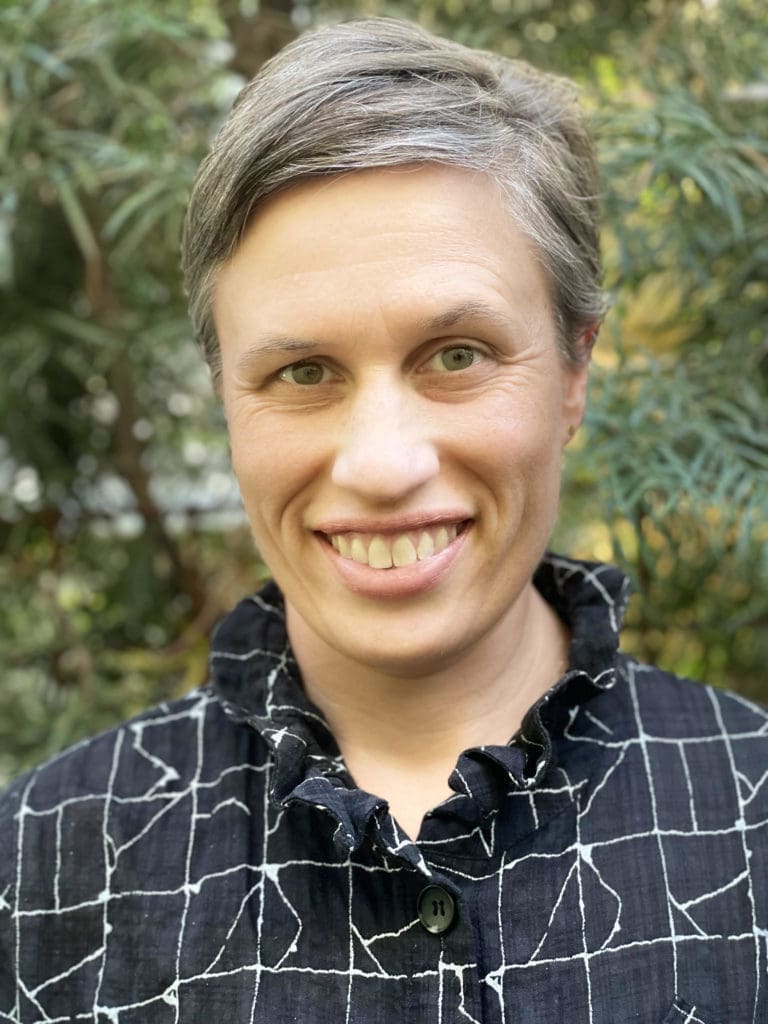
Growing Green Schoolyards: How to Implement Cooling, Water Capture, and Eco-Restoration Practices in Our Neighborhoods – (with Shannon Scrofano)
Aleigh Lewis, Co-Founder, Angelenos for Green Schools, Program Manager, Los Angeles Neighborhood Initiative
Aleigh Lewis is a LAUSD parent of a 1st and 4th grader at Mt. Washington elementary school. She has been organizing with parents for the past year to raise awareness about how green schoolyards are beneficial to students, teachers, and neighborhoods and to urge the school district to create an equitable, comprehensive district-wide greening plan. She co-founded the advocacy organizations Angelenos for Green Schools and MiniForest LA, and currently serves as a Program Manager with Los Angeles Neighborhood Initiative.
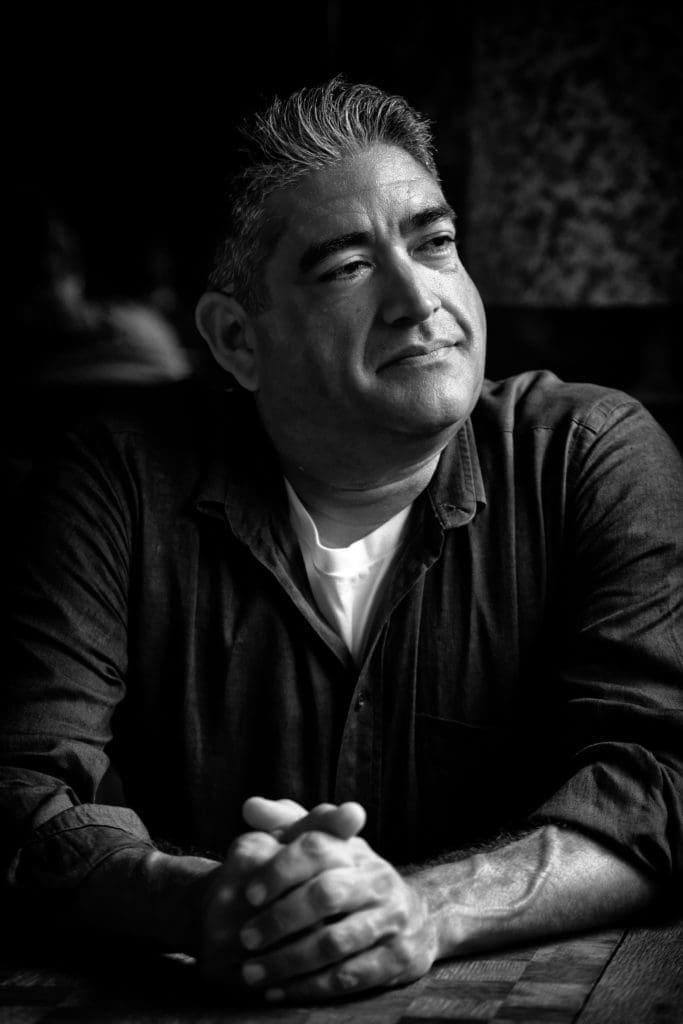
Untapped Wisdom for Mitigating Natural Disasters & Rapidly Increasing Local Food Production (with Moses Massenburg, Coakí, Alison Frazzini, and Nathan Lou)
and
Ancestral Strategies for Land Care that Can Nourish the Next Seven Generations – (with Nathan Lou and Coakí)
Matthew Teutimez, Tribal Biologist, Gabrieleño Band of Mission Indians – Kizh Nation
Matthew Teutimez is the son of John Teutimez Jr., Elder of the Gabrieleño Band of Mission Indians – Kizh Nation of which he is also an enrolled member. Matthew serves as the Tribal Biologist and Director of Resources for the Tribe, specializing in ethnobotanical and cultural uses of native flora and fauna. He has been designated by his Tribe to possess and share Kizh-Gabrieleño cultural knowledge and practices taught to him by Chief Ernie P. Teutimez-Salas along with multiple Elders of the Kizh-Gabrieleño Tribe.
Matthew received both his Bachelor and Master of Science degrees in Biology from California State University, Long Beach and is a visiting scholar at the University of Southern California, working on an interdisciplinary and multi-university project to map and describe the landscape history of the Los Angeles Basin. He is a member of several committees and workgroups including the California Environmental Protection Agency’s (CalEPA) Tribal Advisory Committee; CALEPA’s Community Science Model Workgroup; the City of Los Angeles’ Tree Ambassador Program; and Los Angeles Sanitation & Environment’s Biodiversity Workgroup.
Matthew is also the founder and executive director of an indigenous non-profit known as Xārvo – Laboratory for Indigenous Knowledge Systems, which was created to integrate and apply indigenous methods and knowledge into environmental stewardship, food, medicine, and land management projects.
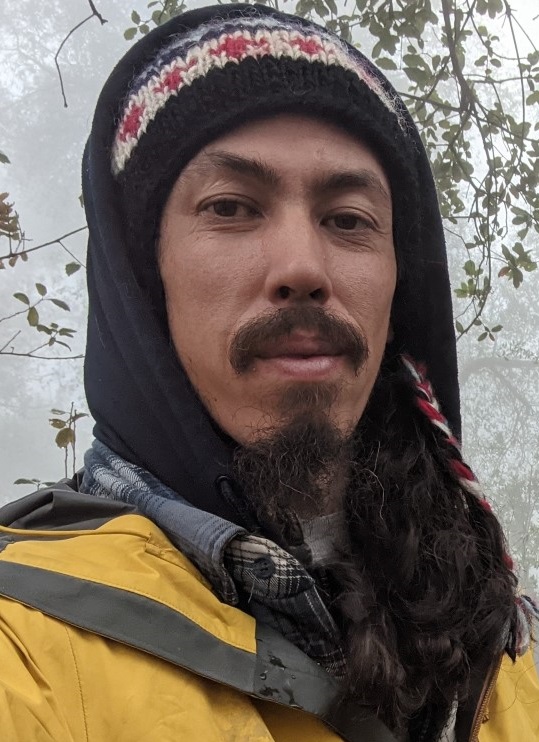
Untapped Wisdom for Mitigating Natural Disasters & Rapidly Increasing Local Food Production (with Coakí, Alison Frazzini, Matthew Teutimez, and Moses Massenburg)
and
Ancestral Strategies for Land Care that Can Nourish the Next Seven Generations – (with Matthew Teutimez and Coakí)
Nathan Lou, Co-Founder, Executive Director, Mongol Tribe
Nathan Lou was born and raised in San Diego. He completed an AS in Agriculture from Yuba College, and BS in Natural Resources, with special emphasis in Fish and Wildlife Conservation, from Oregon State University. With over 15 years of cultivation experience, Nathan has developed a passion for agro-ecology and agro-forestry.
Nathan is the co-founder and executive director of Mongol Tribe, a community and capacity building 501c3 focused on bridging health and wellness with civic ecology. With pillars in co-operative development, regenerative practices, and education, Mongol Tribe is cultivating urban food forests and seed libraries for its Food & Medicine Sovereignty Program. Mongol Tribe is in the process of developing an edible urban forest that will host an apprenticeship program with an emphasis on traditional ecological knowledge and regenerative agriculture practices.
Nathan is currently working on Palomar Mountain performing vegetative surveying for forest health, primarily studying the oak trees and relevant ethnobotanicals as part of Mongol Tribe’s Natural Land Management Program.
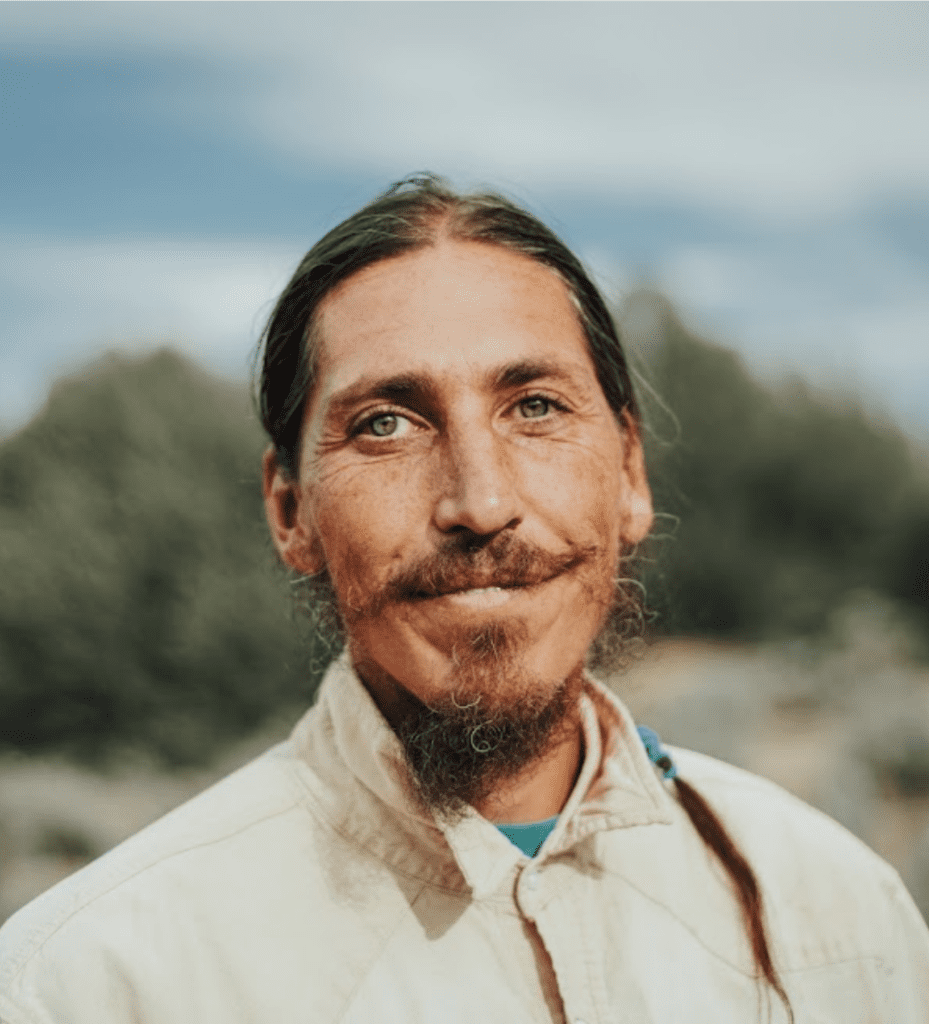
Untapped Wisdom for Mitigating Natural Disasters & Rapidly Increasing Local Food Production (with Alison Frazzini, Moses Massenburg, Matthew Teutimez, and Nathan Lou)
and
Ancestral Strategies for Land Care that Can Nourish the Next Seven Generations – (with Matthew Teutimez and Coakí)
Coakí, Reforestation and Regenerative Horticulture Practitioner and Educator
Coakí was born in the Oklahoma Seminole Nation and has a long history of organic gardening and organic farming. A student of soil microbiologist Dr. Elaine Ingham, he integrates western science schools of thought in biology, ecology, botany and soil science with modern regenerative ecology practices and indigenous land management wisdom, including the ancient form of milpa and the Brazilian traditions which gave birth to syntropic agriculture, bringing the collective picture into his ecorestoration work, including desert reforestation, regenerative horticulture, and food forestry. He lives near the Gila wilderness area in southern New Mexico, USA, where he teaches and practices.
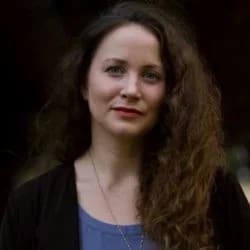
Untapped Wisdom for Mitigating Natural Disasters & Rapidly Increasing Local Food Production (with Nathan Lou, Coakí, Moses Massenburg, and Matthew Teutimez)
Alison “Ali” Frazzini, Policy Advisor, Chief Sustainability Office, Acting Co-Chair, Los Angeles County Food Equity Roundtable, County of Los Angeles
Ali Frazzini is a policy advisor in the LA County Chief Sustainability Office, where she promotes health equity through the OurCounty sustainability plan and related projects. She previously served as Director of Take Care New York at the New York City Health Department, where she oversaw stakeholder engagement and capacity-building for the city’s health equity agenda, and held a fellowship at the United States Office of the Surgeon General. Prior to her government service, she worked in the community setting with people experiencing barriers to housing and employment. She has been a food justice proponent since working at an urban farm in 2006, and has engaged in several community food projects across the country. She received her Masters degree in Public Health Nutrition from the University of North Carolina and her undergraduate degree in Linguistics from Yale University.

Untapped Wisdom for Mitigating Natural Disasters & Rapidly Increasing Local Food Production (with Coakí, Matthew Teutimez, Nathan Lou, and Alison Frazzini)
and
The Mothers of the Environmental Movement are Black (with Tamra Duncan and Briann Battle)
Moses J. Massenburg, Historian, African American Women’s History, Urban Community Gardener and Farmer
Moses Massenburg is a historian and urban farmer committed to activism and education. After graduating from the University of California, Santa Cruz, Moses went on to earn an MA in History from Michigan State University, and is now a Ph.D. Candidate at MSU, where he serves as a research assistant, and editorial assistant for the Journal of African American History. He continues to recruit new students to UCSC and mentors dozens of African American Alumni in their respective fields. Outside of UCSC, Moses serves the world’s largest and oldest organization devoted to African American History and Culture in his capacity as a member of its Executive Council.
Moses brings extensive research and teaching interests in African American History that he believes will elevate Watts beyond its existing strengths in cultural, social, and women’s history by putting them in concert with his expertise in African American women’s and African Diaspora history. He applies his scholarship to his activism with youth and elders as a farmer, community gardener, and historical consultant in Compton and Watts, California. Moses believes in the transformative potential of UC Watts, and wants to expand this experience for prospective and current residents.
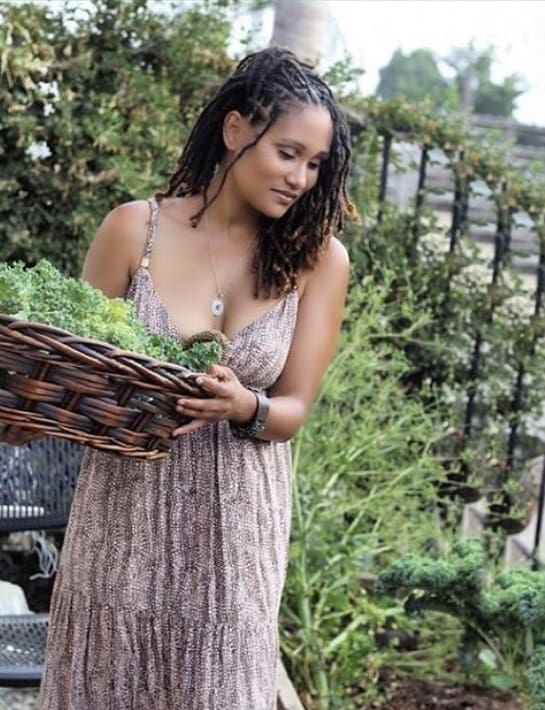
The Mothers of the Environmental Movement are Black (with Briann Battle and Moses Massenburg)
Tamra Duncan, Founder, Urban Farmer, Harmony Houz, Agriculture Coordinator, Compton Jr Equestrians
Tamra Duncan is a mother, an entrepreneur, an urban farmer and founder of Harmony Houz. Harmony Houz was created to help families create their own gardens, to highlight urban farming, and to collaborate with community members that want access to nutritious foods. In the heart of Compton CA, a city not known for farming, she has been growing food and teaching children. After working in customer relations and the medical field, Tamra came to the realization that she has a sacred duty to grow food, teach others an alternative lifestyle and raise animals for her legacy and community. She has been pursuing that calling at Harmony Houz and in her work building a youth gardening program at Compton Jr Equestrians.
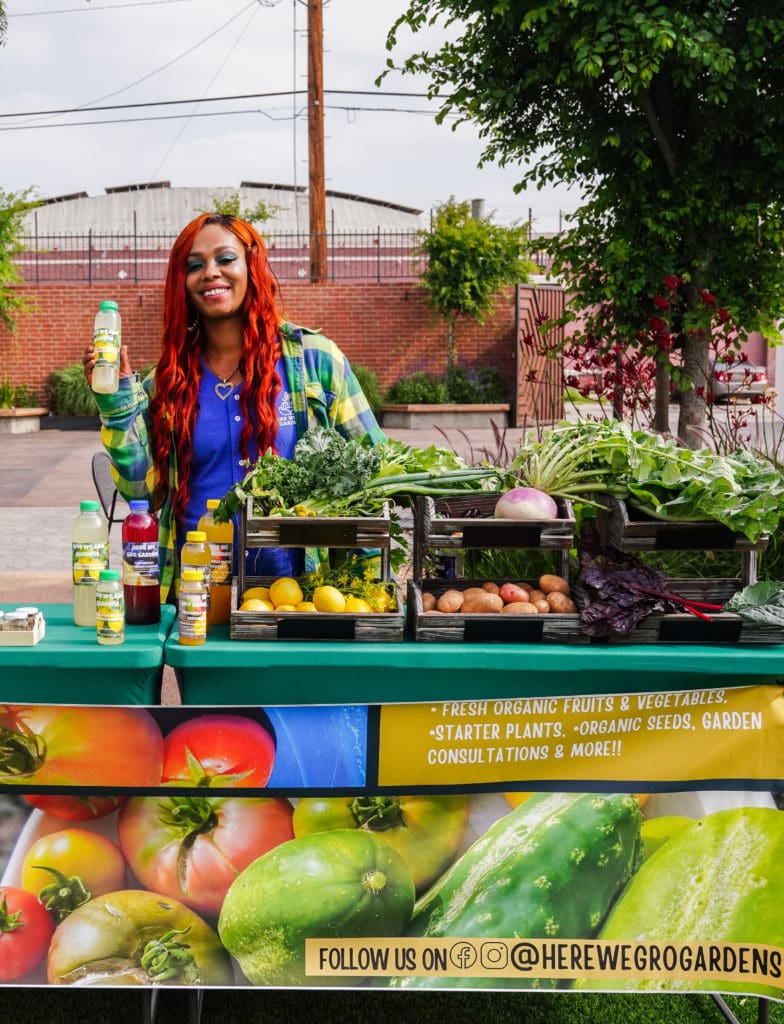
The Mothers of the Environmental Movement are Black (with Moses Massenburg and Tamra Duncan)
Briann “Bri” Battle, Founder, Farm Director, Urban Farmer, Here We Gro Gardens
Briann Battle is the founder of Here We Gro Gardens, an urban farming company that specializes in high-quality organic seeds, fruit and vegetable starter plants grown and harvested by Briann herself. She is rooted in the South Bay city of Gardena, CA, where she has created this mobile/curbside plant nursery and become a certified food producer in the state of California. Growing her array of vegetables and fruits along with her plethora of organic seeds, Briann brings Here We Gro Gardens into local communities and to local families. She is proud to address the needs of communities that are heavily underserved and deprived of local fresh organic produce, creating the opportunity to purchase affordable high quality local and ethically grown produce.
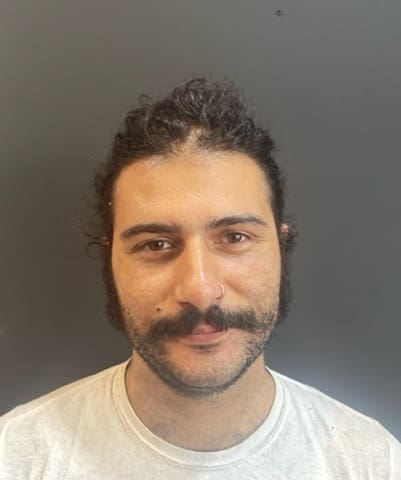
Democracy Travels at 14 Miles an Hour: Mobility Equity, Cargo Bicycles, Youth Empowerment, and Responsible Technology
Jeremy Raphael Ezra, Project Manager, Re:Ciclos: Where Democracy Travels at 14 Miles an Hour
Jeremy Raphael Ezra was born and raised in Los Angeles and has been deeply involved in the Los Angeles bicycle community for many years. He received his bachelor’s degree in Anthropology from UCLA in 2016 and applies his training to build equitable and care-based communities. He has taught bicycle mechanics as a volunteer at the Los Angeles Bicycle Kitchen since 2016 and has served as the board secretary for the past two years. In addition to teaching bicycle mechanics, he is involved in the day to day operations and management of the organization.
Joining the Re:Ciclos team in early 2022, he came into the fold wanting to apply his experience as a bicycle mechanic and community organizer from the bicycle advocate world of Los Angeles. He desires to bring livable city modalities into his home town because he believes addressing issues of mobility and livability in cities is a fundamental harm reduction strategy. Approaching the issues with his background in anthropology, Jeremy strives to co-create meaningful community based solutions that can work towards creating a more equitable social landscape.
National Hosts

Los Angeles Hosts


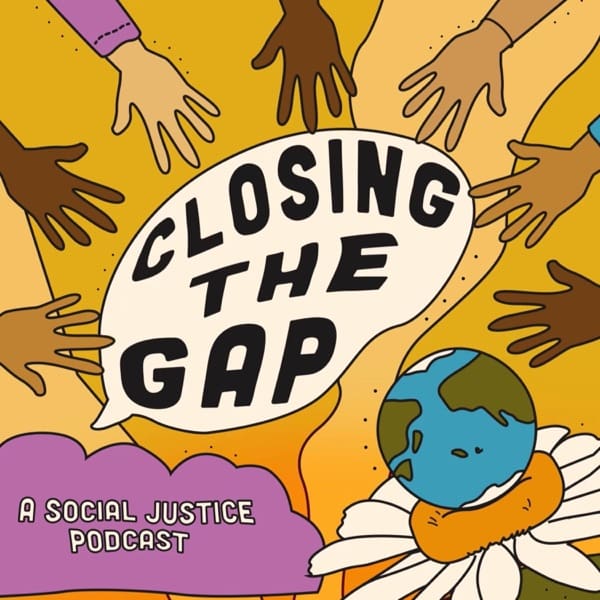
Sponsors



If your organization or business would like to become a sponsor, please contact us at lifeafterfossilfuels@bio4climate.org or at 443-257-3209.
Partners











